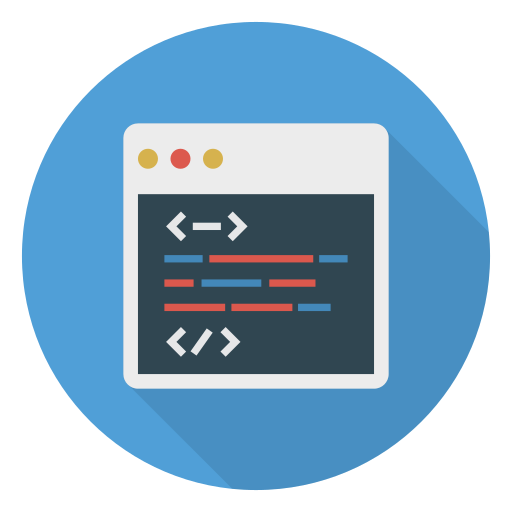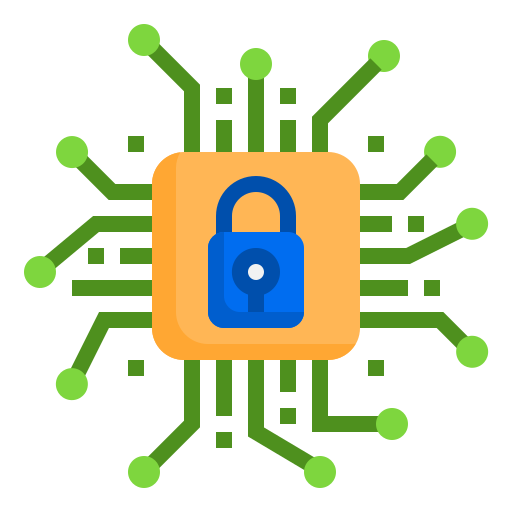Demystifying Low Code and No Code Platforms
Prepared by Syah Putra Shahrul Zahrin
The necessity and rising awareness of the need to digitise has motivated an increasing number of organisations to bring their systems online. For some organisations, however, this may be easier said than done because they lack the resources to hire specialists to set up and monitor their systems over long periods of time, making it advantageous for them to consider using Low Code/No Code platforms to set up their own systems, applications, or processes instead. But what precisely are Low Code/No Code platforms? And when should you use it and when should you avoid it? At this point, you must be having a lot of questions about this approach, right? Find the answers to all your questions by reading through this article to learn more about Low Code/No Code platforms.
Table of Contents

The importance and growing awareness of the need to digitalise has encouraged more and more organisations to take their systems online. For some organisations, however, this may be easier said than done as they simply do not have the resources to employ specialists to set up and monitor their systems over long periods of time, making it beneficial for them to consider using Low Code/No Code platforms to set up their own systems, applications or processes instead.
What exactly is Low Code/No Code?
As the name suggests, Low Code/No Code (LC/NC) is a software development approach that allows applications and processes to be built by individuals with little to no background knowledge of coding. LC/NC programs provide users with Graphical User Interfaces (GUIs) that helps facilitate the programming process, allowing them to conveniently make use of drag-and-drop application components (in place of complex programming languages), and connect them together to build mobile or web applications.
Using a LC/NC platform can be beneficial for both professional developers and “citizen developers” (business users who build or maintain applications with little to no coding experience ). These individuals may make use of LC/NC platforms to create applications with varying levels of complexity to suit their needs without any knowledge of traditional programming languages, machine coding, or a comprehensive understanding of the platform’s inner workings.
Differences between Low Code and No Code platforms

Coding
A small amount of coding still needs to be done within LC platforms in order to supplement its graphical user interface (GUIs), which is the interface through which a user interacts with electronic devices such as computers and smartphones. On the other hand, NC platforms require no coding whatsoever which, on the downside, forces users to accept their default visual interfaces and be reliant on their pre-configured templates.

Technical Knowledge
A certain amount of technical knowledge is required to take advantage of the additional coding capabilities available within LC platforms. On the other hand, anyone who knows how to operate a computer will be able to design and manage a decent NC platform.

Target Users
The additional complexities of LC platforms makes them more suitable for use by professional developers as it allows them to have a little bit more control over the programs within it compared to NC platforms, while ensuring that citizen developers are still able to manoeuvre their way through the development process with minimal issues.

Capabilities
LC programs are capable of creating larger, more complex applications and may be integrated with greater amounts of external applications and external APIs, which, in turn, allows these programs to be scaled to enterprise levels. NC programs, on the other hand, rely solely on visual drag-and-drop interfaces that involve no coding at all, which limits their potential in this area.

Time
LC platforms are approximately 5 to 7 times faster than traditional processes at developing applications. NC programs are able to develop applications at an even faster rate of around 10 to 15 times the speeds of traditional development techniques and reduces testing times while still maintaining a low probability of encountering errors that are normally introduced by manual coding techniques.
Why should we use Low Code/No Code approaches to software development?
LC development opens up more opportunities for non-developers to build apps, and makes it easier for people without the necessary levels of technical knowledge to get involved in the process. There are also a few other reasons why organisations should consider using LC/NC platforms.
- Using LC platforms allows for developers to draw from existing pre-built templates and components to get apps working smoothly and efficiently with little to no hassle. Minimum coding knowledge is required and the platform’s visual approach to software development makes it easy to use.
- Through the integration of legacy systems, old business applications may be updated with new technologies and softwares towards the construction of a more powerful platform. These platforms are also compatible with any devices that run on major operating systems, which allows for cross-platform accessibility.
- LC/NC platforms come with several pre-written modules, cutting the time taken for the development process down from months to mere days. These platforms provide the core technologies for organisations undergoing digital transformation by helping them innovate and adapt faster through process automation, thereby increasing the speeds of their digital transformations.
- The components of LC/NC platforms are standardised, pretested and ready-made, and there are fewer bugs and integration issues that need to be dealt with compared to traditional development methods, which helps to reduce maintenance burdens in the long run. Workflows can also be streamlined, leading to a more effective management of applications within the organisation.
- LC/NC platforms are cheaper or more budget-friendly than traditional platforms since organisations do not have to rely on a dedicated team of developers to maintain them. Citizen developers can also develop applications with minimal amounts of IT knowledge, which helps in minimising learning costs.
- The versatility and flexibility offered by LC/NC platforms in terms of app creation allows organisations to adapt to market changes and meet the needs of new consumers and customers.
Limitations of Low Code/ No Code

Technical Background Myth
While it may be true that users do not need an IT degree to use a LC/NC platform, they would still benefit from having a basic understanding of tech-related jargon, which means that the barrier to entry is low, but not non-existent.

Tied to the Platform
Choosing to use a LC/NC development platform requires an organisation to fully commit to the cloud-based offerings that it provides. This means that although these platforms may be easy and convenient to use at the beginning, problems may arise during the customisation process later on as software engineers will find it challenging to customise applications to suit the organisation’s needs.

Security Issues
The cookie-cutter nature of LC/NC platforms means that they are not as protected from cyberattacks as other independently-developed pieces of software,since organisations may not have access to an application’s source code in order to have complete control over the safety of their data.

Data Management
In general, an increase in the number of users within a system increases the burden on the system as well, which means that LC/NC platforms, with their generic architectures, typically find it challenging to handle massive loads of data at once.

Limited Functionality
Users are limited to the functions that are already available within the LC/NC platforms, which means that organisations might end up needing to employ custom coding techniques with the help of traditional programming methods should any special cases arise in the future.

Speed
LC/NC platforms which provide their users with a wide range of options might run into speed issues as a result of multiple scripts and processes running simultaneously in the background.
When to use Low Code/No Code
LC/NC development techniques aim to simplify processes and make them quicker, which benefits both professional and citizen developers.
- LC/NC platforms are typically great alternatives to traditional development approaches if an organisation needs to make quick app updates and has the ability to make and undo or recall changes on the fly.
- LC/NC platforms are good for organisations which make use of cookie-cutter processes and/or common business workflows in their daily operations
- The advanced integration abilities of LC/NC systems makes integrations with legacy systems more feasible for organisations without having to employ software developers.
When not to use Low Code/No Code
LC/NC platforms, while typically great at streamlining workflows, are not always the right tools for every single job. Here are several scenarios where it may be less than ideal to make use of LC/NC platforms:
- LC/NC platforms may not be the best idea for organisations that deal with high-risk data and require high levels of security and/or data protection measures to be put in place since the basic options available on these platforms typically do not provide comprehensive protection against cybersecurity issues or breaches.
- Certain organisations might have a specific use case that is not commonly found elsewhere, which makes LC/NC platforms less than ideal as their limited functionalities might not provide these organisations with the solutions that they need to solve their niche problems.
- Some organisations require open-ended processes and out-of-the box solutions which, unlike other organisations with a more fixed or defined structure, results in them not benefitting as much from the limited functionalities of LC/NC platforms.
Popular Low Code/No Code Platforms
Here is a list of five popular LC/NC platforms for nonprofits, along with the features that they have to offer.
Amazon Honeycode (No Code)
Organisations can get the basic package of Amazon Honeycode’s no-code app builder for free for teams of up to 20 members or at USD$19.99 and USD$29.99 for their Plus and Pro plans respectively, both of which offer additional capacities. Amazon Honeycode also offers unlimited workbooks and may be integrated with Zapier, Amazon Appflow and other APIs.
Microsoft Power Apps (Low Code)
Microsoft Power Apps is free to use for the first 10 users, and costs an additional USD$2.50 per month for each additional user after that. The low-code development platform has similar functionalities and provides a similar user experience to Amazon Honeycode, the previous entry on this list.
Salesforce Lightning (Low Code)
At USD$25.00 a month for the starter plan, Salesforce Lightning is a pricier option that comes with a few additional perks. Lightning is more customisable, and the wealth of data found in the dashboard may be especially helpful during high volume sales cycles.
Zoho Creator (Low Code)
Zoho starts at USD$10.00 per month and provides a similar experience to Microsoft Power Apps aside from the lack of available desktop apps. The app development platform also has a very polished interface, combining elements of both web design and coding into a single easy-to-use LC interface.
Google Appsheet (No Code)
Google Appsheet is one of the true no-code platforms on this list, with prices for the starter and core plans coming in at just USD$5.00 and USD$10.00 per month respectively. The platform is, however, free for the first 10 users, and allows for a high degree of customisation at the expense of users having to face a higher learning curve.
Summary
- Low Code/No Code (LC/NC) is a software development approach that allows applications and processes to be built by individuals even if they have little to no background knowledge of coding.
- LC and NC approaches differ with regards to the level of coding required, the amounts of technical knowledge needed to make use of each platform, target users, capabilities, and app construction times.
- Benefits of LC/NC platforms include having pre-built templates, integration of legacy systems, reduced app construction times, reduced maintenance burdens, the ability to minimise costs and high versatility.
- Limitations of LC/NC platforms include the need for basic technical knowledge, users having to commit to the platform, security issues, problems with data management, limited functionalities, and low platform speeds.
- Organisations should consider using LC/NC platforms when they need quick updates, have common business workflows, and/or require legacy system integrations.
- Organisations should not consider using LC/NC platforms when they have systems or processes that require high levels of data security, specific functionalities or open-ended processes.
